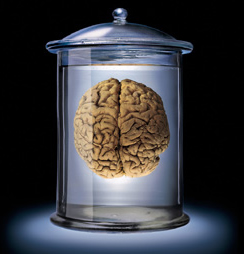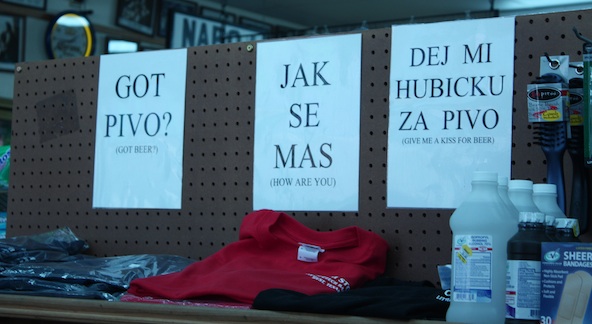Googling “how to reduce the need for affection” doesn’t turn up all that much, and if you ask your friends, they’re just gonna laugh at you. Until weeks later, after they’ve been ditched by whomever it was for them that month, and they come to you, tail between legs, asking “Hey…did you ever find out how to reduce the need for affection?” This has happened to me multiple times!
In researching reducing the need for affection, I’ve come across plenty of articles that try to dodge the issue by avoiding the word “affection.” They claim people are seeking “attention” or “prestige” or “approval” or some other medical-sounding reward. But I think the situation is a lot hotter than that, and by hot I mean a warm fuzzy HUG — get your mind out of the gutter.
A lot of the search results you DO get (YGMV*) are content-farm articles on how to spay or neuter your pet (…so that’s what they’re calling it now?) or y so srs/pitiful pieces in the Huffington Post about how to make your man show you more affection (…she really hasn’t figured that out yet?). I lost the very few useful links I came across. But here’s what I’ve discovered:
- Get busy working on an idealistic project(s).
- Get a pet (this is more of a hack: route around humans).
- Get lost. Aloneness becomes a more comfortable habit given time.
And keep in mind this Theodore Sturgeon quote from his novel Godbody, which the character Britt Svenglund ascribes to the character Dan Currier: “any person who cannot be by himself, it’s because when he is by himself he thinks he is not in good company.”
In the last year, I’ve been in a totally unprecedented situation: I’ve had lots of friends! And I’ve conducted a lot of socializing. (Mostly at this excellent coffeehouse & computer repair shop in Fort Worth.) The whole experience startled me. “Wow, so this is what all the people I hated in high school were doing!” It gets so thoroughly, disgustingly addictive. You wake up one day, and your emotions are beseeching the universe to deliver you affection from others. Your long-lasting contributions to humanity? Yeah, screw those. WAIT NO!
You have to consciously pull yourself away if you get addicted. (Twitter, I’m looking at you.)
Now, you might not want to become a recluse. Currently you gotta interact with people to get where you want to go in life, and it turns out social skills are useful for that. Plus, a good social space generates good random. You encounter people who give you knowledge and paying gigs and culture. This happens in cyberspace, too, but it happens differently in meatspace; I’m not sure how to describe the difference, or why both are valuable.

Brain in a Vat Doesn’t Need Your Meatspace (Pic stolen from here).
A pickup artist is going to look at people with alleged affection-deficits and offer to teach them how to acquire more affection. Which, when you think about it, is not unlike a nicer (or at least nicer-sounding) Thrasymachus, who (according to Plato) taught that justice is nothing but “the advantage of the stronger.” (In the fifth century BCE, in ancient Greece, you could buy teachings from sophists such as Thrasymachus. Early-day Tony Robbins.) Pickup artists have a term: One-itis. Urban Dictionary as usual has the best definition:
Often confused with love, this is the feeling that a particular woman is actually special. This is just an illusion; she is the same as the other three or so billion. “Go fuck ten other women” is the most commonly prescribed treatment for this “disease” (hence the “itis”), as it tends to show quite quickly how very alike people are.
But everyone is a special snowflake, dammit (srsly, you are. And aren’t at the same time, too. Paradox WOAH!). Anyway, it is just remarkable, the difference in perspective, when faced with the question: “What do I do about my affection-deficit?” 1) Become more skilled at manipulating people into giving you affection; or 2) Reduce the need for affection. I’ll take option 2.
Not so fast, the psychiatrists are here. They describe “the self-effacing solution” of wanting too much affection, and the resignation solution of (among others) schizotypals wherein you want too little. Oh, good, the psychiatrists left. Continuing on.
Once I was chatting online with someone, importuning the person for attention affection, and found myself rebuffed; instantly my mind generated epic narratives about how they were full of shit and one day, despite my anger and bitterness, I would triumph before all! AT THE EXACT SAME TIME in another chat window someone was importuning me for attention affection, all plaintive, and I was like, geez, this person’s annoying, won’t they go away, like srsly. Humans are up to here in this affection-acquiring attention-economy business. It’s the pits.
So you want the golden mean of affection and social interaction that suits your purposes and not the purposes your addictions or inexperience define for you. (A golden mean is not necessarily in the middle of the continuum, and not necessarily any sort of average.) On the other hand, maybe you’re such an awesome mystic that you flat-out don’t need to interact with others at all. In which case … can we meet?
INTERLUDE. Let’s take a break for a second.
* YGMV: Your Google May Vary, depending of factors such as your IP address. Which is one reason why proxy networks such as Tor are fun: “Today I’m gonna Google from the point of view of someone in the Czech Republic. Podívejte!“
Writing this I found out there’s a now-defunct Swedish goth metal band called Beseech.
Beseech covered ABBA’s “Gimme! Gimme! Gimme! (A Man After Midnight)” which is both awesome and horrible, and most fitting for this post.
Half past twelve / And I’m watching the late show in my flat all alone / How I hate to spend the evening on my own! … [Yeah I can’t take any more of this either.]
END INTERLUDE. Back to srs bizns.
I should point out that killing a social addiction is most conducive to creative thought. Which is much more useful to the world and (less important) much more happiness-producing than nightlife. What other people think really gets into you and mucks with your invention wellspring. Of course, not so good to invent something without people in it, so at least say hi to somebody today, okay? Or maybe just this week. (Even if just online ;-)
How to Reduce the Need for Affection by Douglas Lucas is licensed under a Creative Commons Attribution-NonCommercial-ShareAlike 3.0 Unported License. Based on a work at www.douglaslucas.com. Seeking permissions beyond the scope of this license? Email me: dal@riseup.net.





 Twitter:
Twitter:
Join the conversation